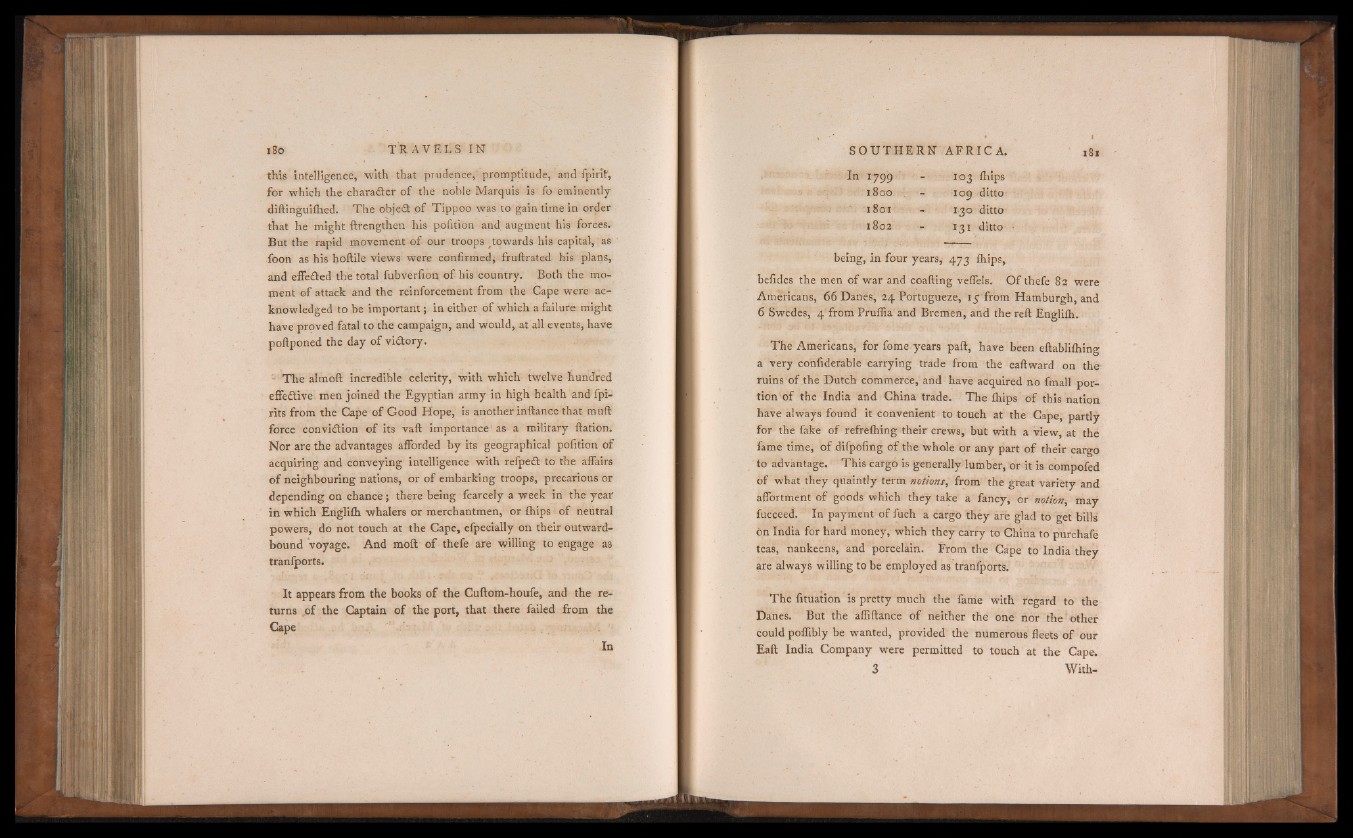
this intelligence, with that prudence,' promptitude, and fpirif,
for which the charaiter of the noble Marquis is fo eminently
diftinguifhed. The objefl: of Tippoo was to gain time in order
that he might ftrengthen his pofition and augment his forces.
But the rapid movement of our troops , towards his capital, as
foon as his hoftile views were confirmed; fruftrated his plans,
and effected the total fubverfion of his country. Both the moment
of attack and the reinforcement from the Cape were acknowledged
to be important; in either of which a failure might
have proved fatal to the campaign, and would, at all events, have
poftponed the day of victory.
The almoft incredible celerity, with which twelve hundred
effective, men joined the Egyptian army in high health and fpi-
rits from the Cape of Good Hope, is another inftance that muft
force conviction of its vaft importance1 as a military ftation.
Nor are the advantages afforded by its geographical pofition of
acquiring and conveying intelligence with refpeCt to the affairs
of neighbouring nations, or of embarking troops, precarious or
depending on chance; there being fcarcely a week in the year
in which Englilh whalers or merchantmen, or fhips of neutral
powers, do not touch at the Cape, efpecially on their outward-
bound voyage. And moft of thefe are willing to engage as
tranfports.
It appears from the books of the Cuftom-houfe, and the returns
.of the Captain of the port, that there failed from the
Cape
In
In 1799
1800
1801
1802
103 Ihips
109 ditto
130 ditto
131 ditto
being, in four years, 473 fhips,
befides the men of war and coafting veffels. Of thefe 82 were
Americans, 66 Danes, 24 Portugueze, iy from Hamburgh, and
6 Swedes, 4 from Pruffia and Bremen, and the reft Englilh.
The Americans, for fome years paft, have been eftabliihing
a very confiderable carrying trade from the eaftward on the
ruins of the Dutch commerce, and have acquired no fmall portion
of the India and China trade. The fhips of this nation
have always found it convenient to touch at the Cape, partly
for the fake of refrefhing their crews, but with a view, at the
fame time, of difpofing of the whole or any part of their cargo
to advantage. This cargo is generally lumber, or it is compofed
of what they quaintly term notions, from the great variety and
affortment of goods which they take a fancy, or notion, may
fucceed. In payment of fuch a cargo they are glad to get bills
on India for hard money, which they carry to China to purchafe
teas, nankeens, and porcelain. From the Cape to India they
are always willing to be employed as tranfports.
The fituation is pretty much the fame with regard to the
Danes. But the affiftance of neither the one nor the ’ other
could pofiibly be wanted, provided the numerous fleets of our
Eaft India Company were permitted to touch at the Cape.
3 With